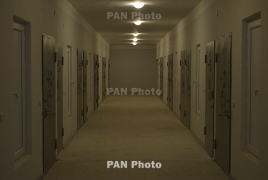Healthcare transition in Armenian prisons raises inmate concerns March 18, 2025 - 17:28 AMT PanARMENIAN.Net - The Penitentiary Medicine Center SNCO's nursing staff is present in correctional facilities around the clock, while senior medical staff operate from 9:00 AM to 6:00 PM. This was stated by Naira Babayan, head of the Medical Assistance Organization Department of the Penitentiary Medicine Center SNCO under the RA Ministry of Health, during a discussion on Medical Assistance in Correctional Institutions at the Media Center. According to her, the Penitentiary Medicine Center SNCO, except for the Hospital for Convicts, provides healthcare corresponding to the primary healthcare level in all its subdivisions, which implies that services are provided only on a demand basis. This structure was previously under the jurisdiction of the Ministry of Justice but has recently transitioned to the Ministry of Health, reports Panorama.am . Babayan noted that the medical care currently provided by the "Penitentiary Medicine Center" SNCO is of higher quality and has increased in volume compared to the previous system. According to her, this change has been particularly significant since the institution transitioned from the Ministry of Justice to the Ministry of Health. Anahit Mkrtchyan, a member of the Public Monitoring Group conducting public oversight in penitentiary institutions and bodies under the RA Ministry of Justice, expressed the opinion that during the period when the institutions were under the jurisdiction of the Ministry of Justice, certain issues were resolved more effectively, particularly in terms of medication provision and the quality of medical services. "Over the years, the established practice implied that certain problems could be solved with the intervention or permission of the head of the penitentiary service. However, the abrupt change to the jurisdiction of the Ministry of Health has caused inconveniences and dissatisfaction among inmates. Additionally, issues have arisen for the medical staff, as their cooperation with the correctional facilities has not yet stabilized. "The cooperation is new and still needs refinement. Currently, there is no strong bridge of trust between the inmates and the medical staff. One reason is probably that inmates prefer to be transferred to civilian hospitals as quickly as possible or, in many cases, their dissatisfaction is related to the desire to be transferred to the 'Hospital for Convicts,' since mainly only primary medical care is provided in correctional facilities, while they often require specialized medical support," Mkrtchyan noted. During the discussion, addressing the prevalent diseases in correctional facilities, Naira Babayan mentioned that statistical data do not significantly differ from the indicators recorded among individuals at liberty; cardiovascular diseases and oncological conditions are most common. As a result of floods in Armenia’s northern Lori and Tavush provinces, 17 bridges, including five large ones, have collapsed. David Vardanyan is the son of former Karabakh leader Ruben Vardanyan who who is currently imprisoned in Azerbaijan. Prime Minister Nikol Pashinyan has met with Stephan Schütz, Executive Partner at Gerkan, Marg and Partners. The number of state universities will be reduced from 23 to 8 by 2030, Minister of Education, Science, Culture and Sport Zhanna Andreasyan has said. Partner news |